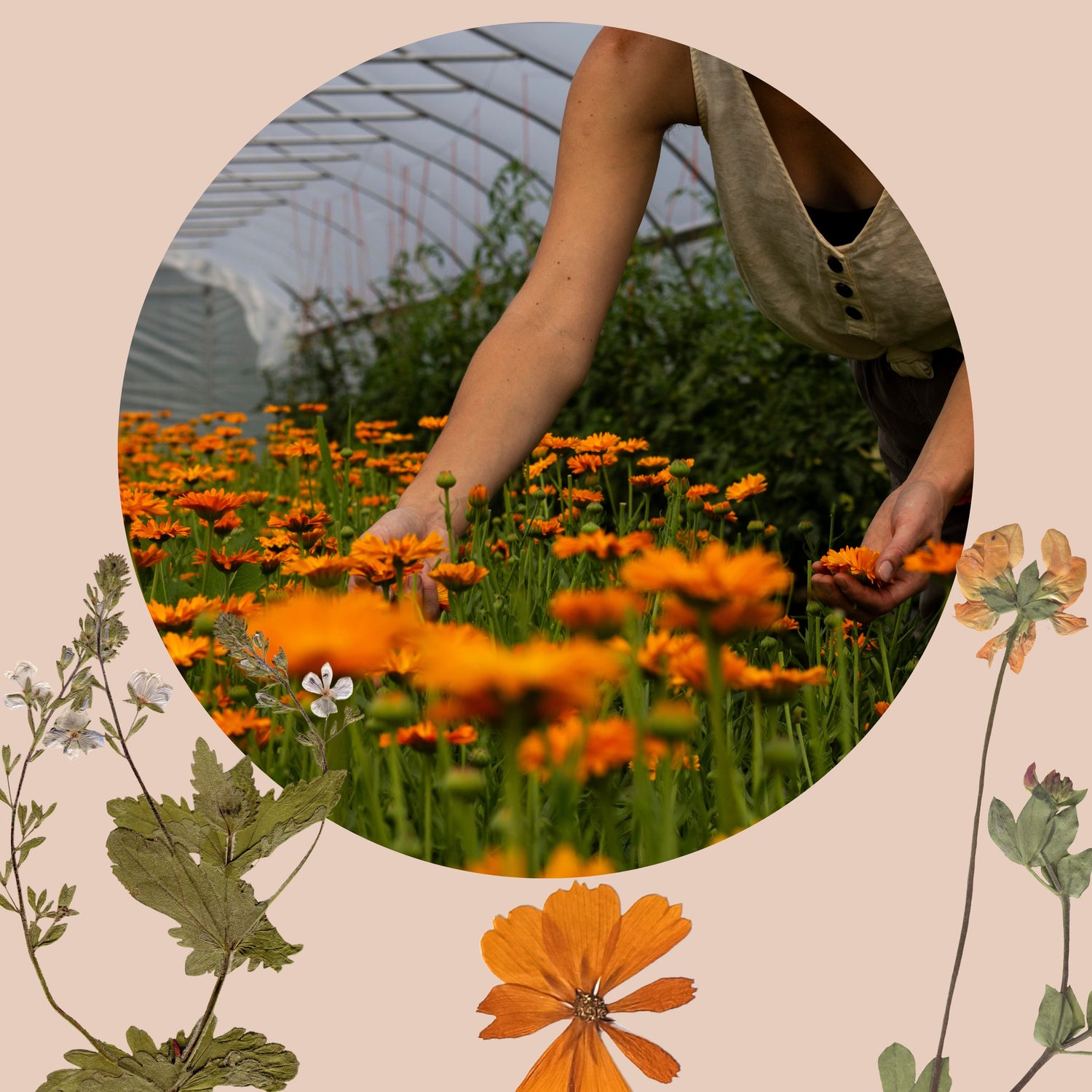Herbal Infusions: Elevate Your Tea Experience
Also called tisanes, there are a handful of ways to make herbal infusions to enjoy. Whether you're looking to add flavor, aroma, or even therapeutic benefits to your cup, herbal infusions offer a plethora of possibilities. Let's dive into the practical art of infusing herbs into tea and explore various methods to enhance your tea-drinking experience by match the appropriate method with the right herbs.
1. Hot Water, Quick Steep:
The hot water infusion method over a shortened period of time is perhaps the most traditional way to infuse herbs as a tea. This method is most applied to leafy herbs or strong aromatics and high volatile oils that don't require a longer steep such as peppermint, ginger, lavender, thyme, and so on. Here’s how you can do it:
Quick Steep Technique: Start by boiling fresh, filtered water. Measure out a teaspoon to tablespoon of dried herbs (or, if you're heavy-handed with your herbs like we are, upwards of 2 tablespoons) per 8 oz of water. Either add the herbs to the water and strain out afterward, or add them to a strainer ball placed in your cup and let it all steep for about 5-10 minutes, until your desired strength.
2. Hot Water, Overnight Steep
This approach is called an "herbal infusion" and is most ideal for herbs that are rich in minerals and vitamins such as nettle, oat straw, red clover, alfalfa. It can also be for herbal blends that have gentler aromatic herbs like tulsi (holy basil), rose, hibiscus, and lemon balm. These herbal infusions are meant to be made in higher quantities to be enjoyed throughout the day.
Long Herbal Infusions: To make an herbal infusion, begin by boiling filtered water. Grab a quart jar, add 1 ounce of your chosen herb or blend, pour in the hot water, cap the jar and shake. Allow this to sit a minimum of 4 hours or simply make it before bed and strain it out in the morning! Enjoy as is or gently reheat in a pot on the stove if you prefer to drink it hot.
3. Cold Infusion Method:
Cold infusions are perfect for delicate herbs or those you want to enjoy without any bitterness that can sometimes result from hot water. A cold water infusion is also super ideal to bring out the slimy goodness of mucilaginous herbs like slippery elm and marshmallow root. Here’s how to make a cold herbal infusion:
Refrigeration or Cold Method: Place your chosen herbs in a jar of cold water. Refrigerate for several hours or overnight to allow the flavors to gently meld with the water. Strain and serve over ice for a refreshing herbal drink. You may also skip the fridge and apply the long herbal infusion method as described above, but with cold water. Allow to steep overnight, strain, add ice and/or sweetener of your choice!
4. Sun Infusion Method:
For a slower, more meditative approach to herbal tea infusion, try the sun tea method:
Solar Power: Place your herbs in a clean glass jar filled with water. Seal the jar and place it in direct sunlight for several hours (4-6 hours). The gentle warmth of the sun will gradually infuse the water with the herbal essence. Strain and enjoy chilled or at room temperature.
5. Decoction Method
Herbs like roots, berries, barks, some spices and mushrooms need a more rigorous approach to access their properties and extract their flavor. This method works well for making herbal decoctions which are more concentrated than simple infusions, and can be the base for syrups, elixirs, and more!
Decoction: Simmer the herbs gently on the stove in water for a long period - sometimes this may look like just 20 minutes or even multiple hours. If time isn't available for watching the stovetop, consider using your crock pot! Crock pots (or slow cookers) are a great alternative to a longer safe, heat extraction.
Herbal infusions not only offer a delightful array of flavors but also provide numerous health benefits when applied with the appropriate herbs. From relaxation and digestion aid to immune support and beyond, there’s an herbal infusion for every mood and occasion.
Looking for tea blends to get started? Try any of our herbalist-formulated house blends!


